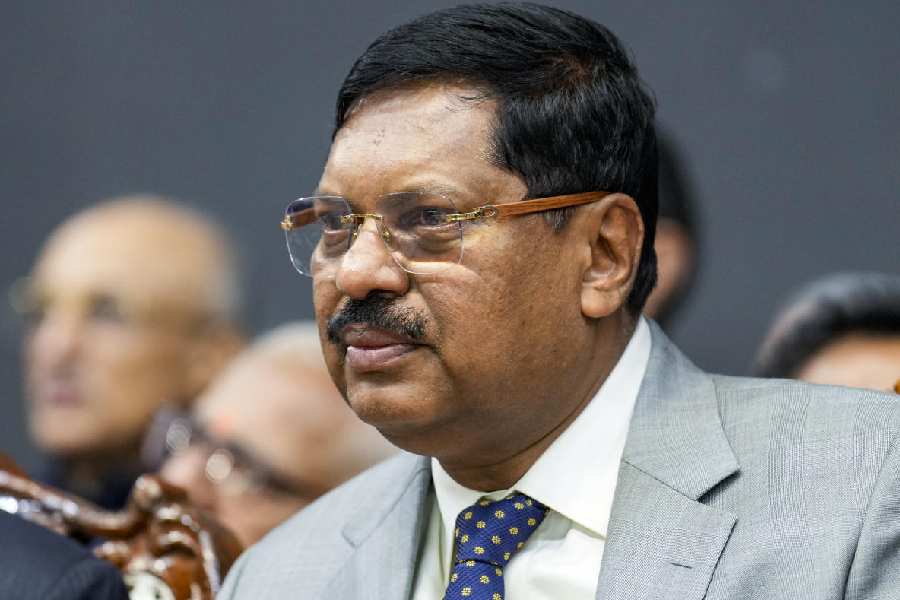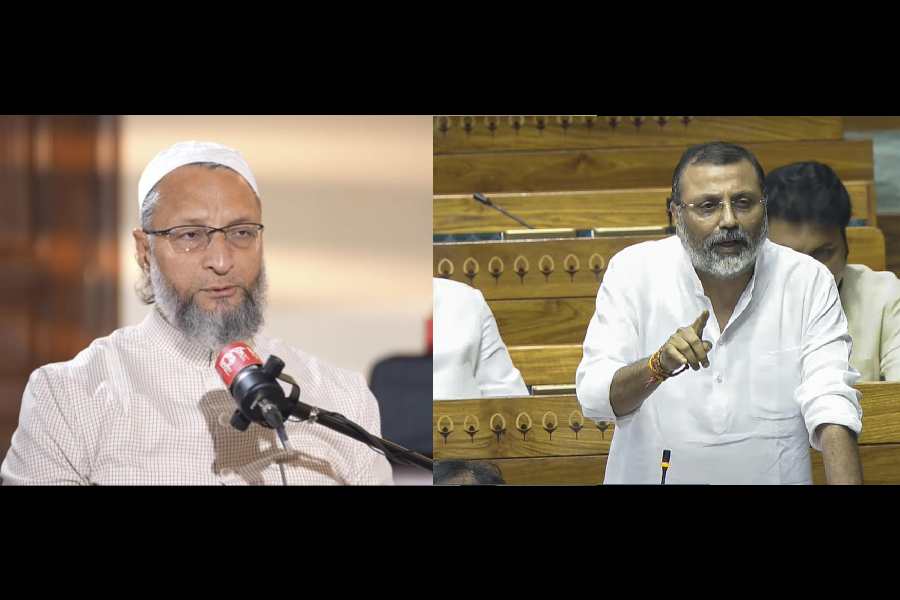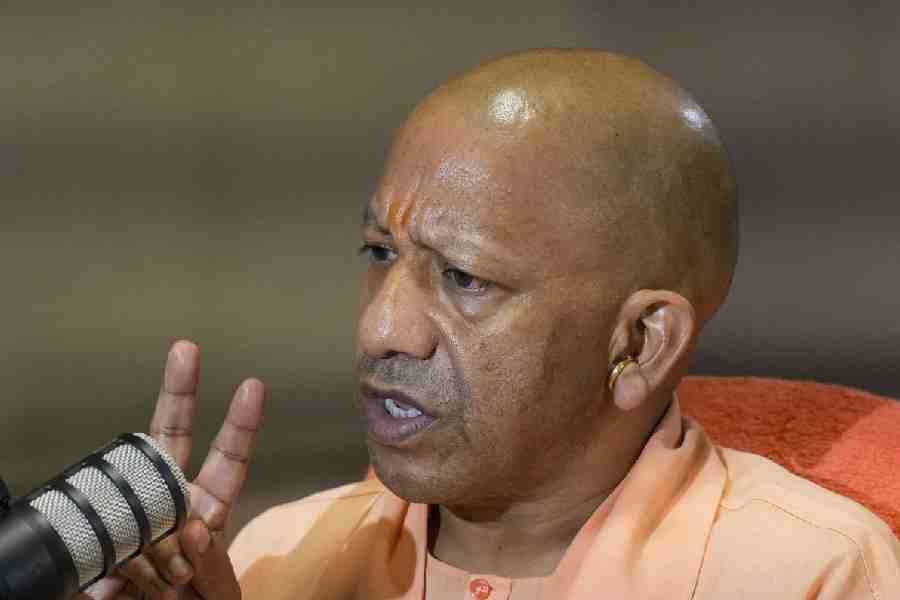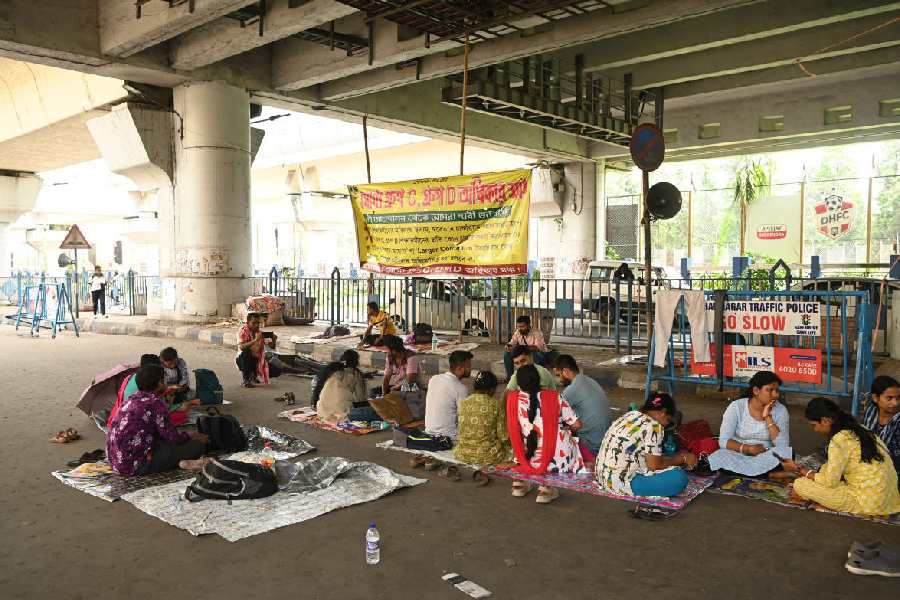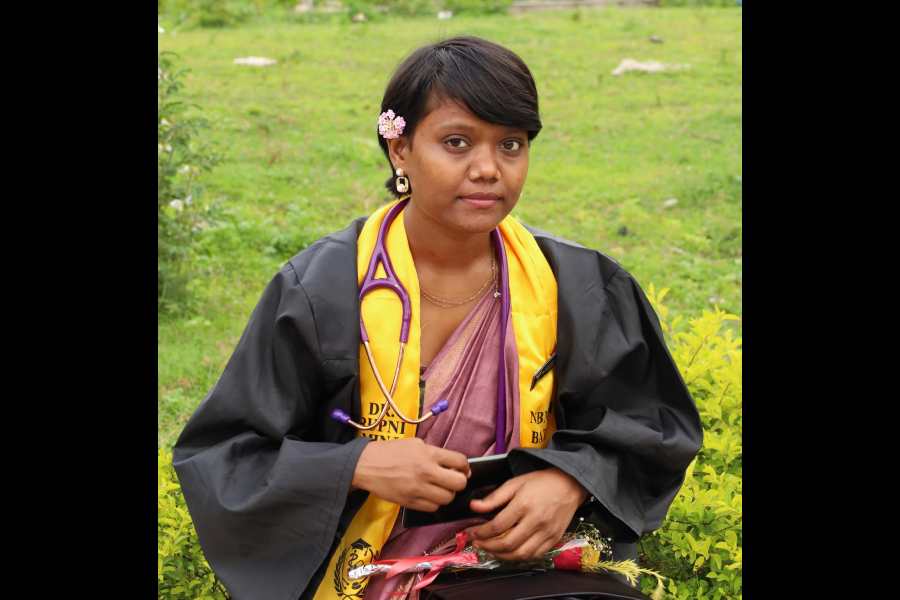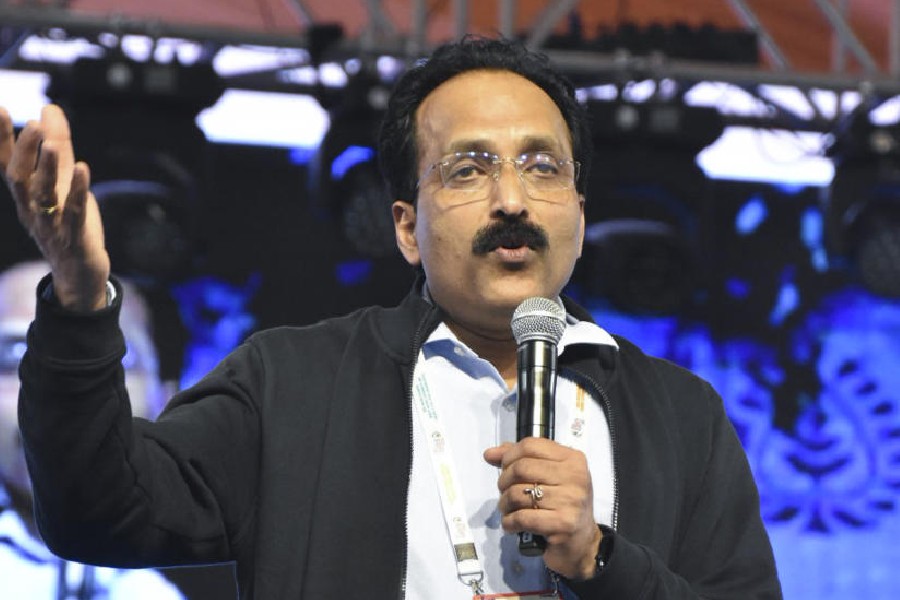
From her participation in the Assam Movement to highlighting her care for the less privileged in her books, activist-author Rita Chowdhury shared it all at An Author’s Afternoon — presented by Shree Cement and Taj Bengal, held in association with t2, Prabha Khaitan Foundation and literary agency Siyahi — at the Alipore star hotel. Rita was in conversation with writer-editor Anjum Katyal. Excerpts from Rita speak...
CHILDHOOD MEMORIES
My father was in civil administration. He had a special training in guerrilla warfare too. During the 1971 Bangladesh Liberation War, my father trained the Mukti Bahini people. It was a very different experience for me — I was in Class III — because I saw the devotion of all the young boys from Dhaka University. When I went to East Pakistan, during the war, with my father, I came across a house with bullet holes all over the walls.
I was about nine or 10 years old when my sister, who was one-and-a-half years older than me, passed away. My childhood ended there. I entered into a new life — that of books. And then my understanding of life and my perspective on it changed.
THE ASSAM MOVEMENT
I don’t know how I became a writer... perhaps my background, or my experiences, or perhaps it was inborn. I think my entire life has been devoted to protecting people, protecting everyone in distress. I can’t tolerate injustice.
I was in college when the Assam Movement started. I took part in it and I learnt about service and dedication. I was not a leader, but I was somebody who would not shy away from the front lines. I had to abscond for almost one year, I was in hiding.
I remember a person giving me a book, which was covered with a newspaper. I noticed an advertisement on it about a publisher asking for manuscripts on the Assam Movement, so I decided to write this book (Abirata Jatra).
I selected some names for different characters and started writing some dialogues. There was no structure for the novel, because I had never written before that! Once I finished the book, I named it Abirata Jatra, and sent it. I was arrested around that time and put behind bars. I was interrogated for days. I saw all the people who lived inside the jail, the women prisoners, how they were deprived of their dues. So, I started fighting for them and I was confined in a cell, because I had started challenging everything. During my stay in jail, I won the first prize for that novel, awarded by Assam Sahitya Sabha. So overnight, in jail, I became very popular, and overnight, I became a writer, a novelist.
FINDING FREEDOM IN THE ASSAM MOVEMENT
Generally, girls are told, don’t go here, don’t go there, don’t do this, don’t do that. Because of the Assam Movement, that lakshmanrekha was not there. I entered into greater society and met different kinds of people. I saw poverty and life very closely. I think that gave me immense experience about human beings and society at large.
In those days of the movement, I remember my father telling a few boys to immolate themselves, inspired by the stories of the Buddhist monks in Myanmar. After hearing him, I said, “If it has to be done, I will be the first person who will do this. What right do you have to encourage young boys to kill themselves for a cause?” My father was very upset, but he stopped asking this after that. Now, if I hadn’t protested at that time, the history of Assam could have been different. I was young, but I had the blessing to be wise enough to protest at this point.
When I was young, there would be a pile of cycles outside my house because all my guy friends would come over to play music at my house. The best thing was that my mother never questioned this, why I was always surrounded by young men. This freedom helped me to become the kind of woman I am.
My pen became my platform to protest. I took up many social issues, worked on them and wrote about it.

SEARCHING FOR AN IDENTITY
After the movement was over and the Assam Gana Parishad was formed, my husband, who was a co-activist, became a minister.
There was a sharp U-turn in my life, from an activist to the wife of a minister. These are two different identities. It was a period of confusion and suffering. For nearly 10 years, I didn’t have any identity. I became a teacher and concentrated on studies.
But then I thought, it is time for me to go back to my people. I had an offer to join politics but that is not my place. As a writer, I was closer to my people than I would be as a politician. It is the one thing that is completely in my hands, I am completely independent when I have my pen, and I need that love that I had got as an activist.
Nine years after my marriage, my daughter was born and then I understood the meaning of life. Then (after 1995) I started writing seriously. Since then, I have taken care of my daughter and my son, and taught, and written. These are my main identities.
INSPIRATION
One of my inspirations is Ashapoorna Devi. I don’t think there is anyone like her. She was a great soul. From her writing, I have learnt about human psychology.
I also learnt two very important things about novel writing. You cannot be partial or in favour of the protagonist, as a writer. And the second is that it should be focused on the ‘why’— why that particular character reacted in that situation like that. The development of a character starts from that question.
EMPOWERMENT IN WRITING
I am very observant and I record and remember things. When I write, that is where I get my information.
All my novels are not based on research, but every novel has a mission. Also, all my novels are women-centric, with strong, empowered women as protagonists. Empowerment is not about having money, or dominating men, it is about having self-respect. When I respect myself as a human being, the journey of empowerment starts. I wanted to convey that and tell women — don’t quit. In all my novels, I tried to tell my people that death is inevitable. It is with you all the time. At any time you can die. But before that, you can try and fight. The power lies with you.
LOOKING FORWARD
I feel that I’m lucky that I had these experiences, of going to jail, and so on. I have started writing these down so that I don’t forget. To share these will take a lot of time. I was not in touch with my family at all and it was a different and difficult experience too. My next book is not a history of the resistance but is a kind of recalling.
ABOUT CHINATOWN DAYS
Chinatown Days is about the people of Chinese origin who lived in the tea gardens of Assam and who were forcibly deported during the Sino-Indian war in 1962. Also, no one wanted to tell their story.
The character of Arunabh (the character who ‘writes’ this book) has a reflection of my own kind of activism. I met those people who were arrested and deported and whose families were separated. I wanted to show that even a democratic country turns authoritarian in a time of war. The evil has passed, but the effects remain, even after India has won the war.
I met a lady who was separated from her family as a six-year-old. Her family was arrested and she ran to the police station where they were taken, but by that time the train had left and she was left behind. I met her after 50 years, and sent her and her children to China where she finally met her parents. They were 90 years old and they spoke in pure Assamese. This was one of the biggest satisfactions I got from this project, I did some good to some human beings.

Text: Rushati Mukherjee. Pictures: Rashbehari Das


